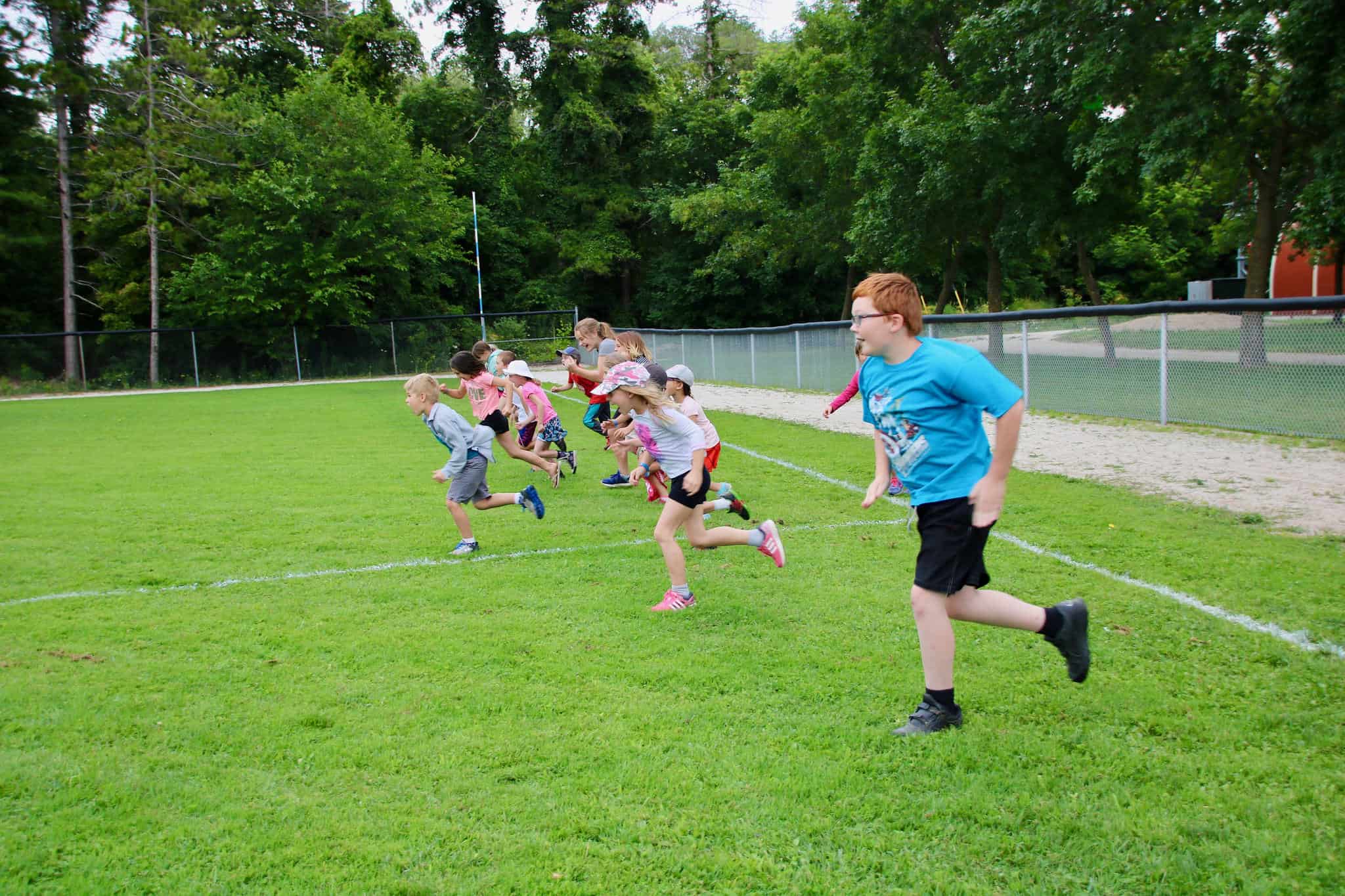All kids deserve to thrive in mind and body. But in order for them to reach their full mental, emotional and intellectual potential, we have to foster the important connection between the health of the body and of the mind. For decades we’ve heard how physical activity improves heart health, helps maintain healthy body weight, and builds strong bones and muscles in kids. Now it’s time to take a closer look at what physical activity does for their brain.
The report found that only 35 per cent of 5 to 17 year-olds and 62 per cent of 3 to 4 year-olds are getting the recommended physical activity levels for their age group and that this may be having an impact on the health of their brains. We also know that 76 per cent of 3 to 4 year-olds and 51 per cent of 5 to 17 year-olds are engaging in more screen-time than is recommended by the Canadian Guidelines for screen-based sedentary behaviours. A growing body of evidence indicates that physical activity in childhood is essential for a healthy brain and leads to improved:
- Thinking, learning and memory
- Problem-solving ability
- Brain plasticity – the growth of new brain tissue
- Stress management and ability to cope with anxiety and depressive symptoms
- Self-esteem and self-worth
- Attention and focus
Regular physical activity – even in short bouts – can help kids’ brains on many levels, including better cognition, brain function, and mental health (i.e. emotional, psychological and social well-being). For example, according to the report, research has shown that students who exercise before a test show stronger brain function than those who don’t. Furthermore, children and youth who have brain-based disabilities, such as autism spectrum disorder or ADHD, may experience the greatest benefits and improvements in cognitive function as a result of regular physical activity.
At the YMCA of Simcoe/Muskoka, we know first hand that exercise is one of the most effective ways to improve mental health. Helping kids grow in mind, body and spirit is one of our top priorities and we will continue to make physical activity accessible to all families in our communities.
Tips to Get Kids More Active
Be active as a family – if your kids see you being active they’ll likely grow up being active too. In addition to you being a good role model, getting active as a family encourages togetherness and connectedness, which are all important for good mental health.
Encourage daily activity – if you want to help your kids reach their mental, emotional and intellectual potential engage them in daily physical activity. It may be the most accessible, but underutilized, way to support them. Enroll them in recreational sports and camps or simply get them playing outdoors more.
To download the 2018 ParticipACTION Report Card Highlight Report, including the Expert Statement, or Full Report, please visit www.participACTION.com/reportcard.
For recommendations and programs on how to increase kids’ physical activity and improve brain health, please visit www.ymcaofsimcoemuskoka.ca.
Rob Armstrong is President and CEO of the YMCA of Simcoe/Muskoka; focused on investing in communities, ensuring all people have access to the Y and implementing programs that are helping thousands of youth and families to learn and thrive. Prior to joining the YMCA of Simcoe/Muskoka in 2011, Rob held senior leadership positions at the YMCA of Edmonton, YMCA of Owen Sound, YMCA of Cambridge and most recently YMCA Ontario. Rob holds an Honours degree in Physical and Health Education from Queen’s University and has since augmented his education with advanced courses from the Harvard Business School of Entrepreneurship, Ivy School of Business and Queen’s University Executive Education Program.
Since coming to Simcoe/Muskoka, Rob has taken an active leadership role in the Child, Youth and Family Services Coalition of Simcoe County and Barrie’s Pathways to end homelessness. He served on a number of boards including local Community Foundations, Affordable Housing, Parks and Recreation Ontario and the Minister of Health Promotions Health Advisory Committee.

